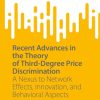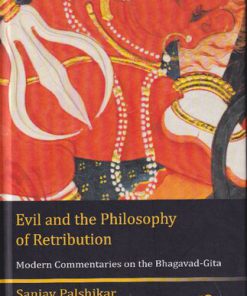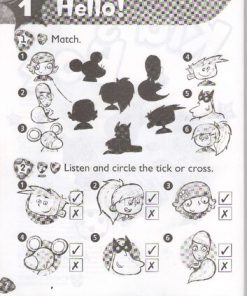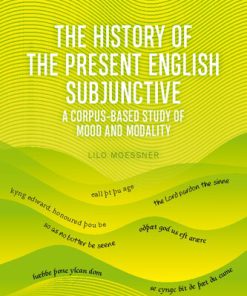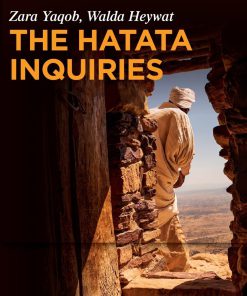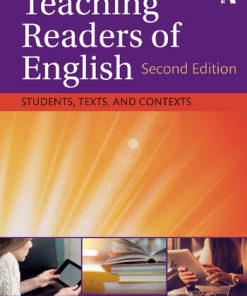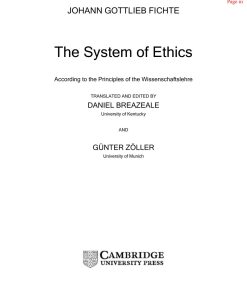the Conditioned and the Unconditioned Late Modern English Texts on Philosophy 1st Edition by Isabel Moskowich, Gonzalo Camiña Rioboo, Inés Lareo, Begoña Crespo ISBN 9789027262172 9027262179
$50.00 Original price was: $50.00.$25.00Current price is: $25.00.
the Conditioned and the Unconditioned Late Modern English Texts on Philosophy 1st Edition by Isabel Moskowich, Gonzalo Camiña Rioboo, Inés Lareo, Begoña Crespo – Ebook PDF Instant Download/Delivery: 9789027262172 ,9027262179
Full download the Conditioned and the Unconditioned Late Modern English Texts on Philosophy 1st Edition after payment
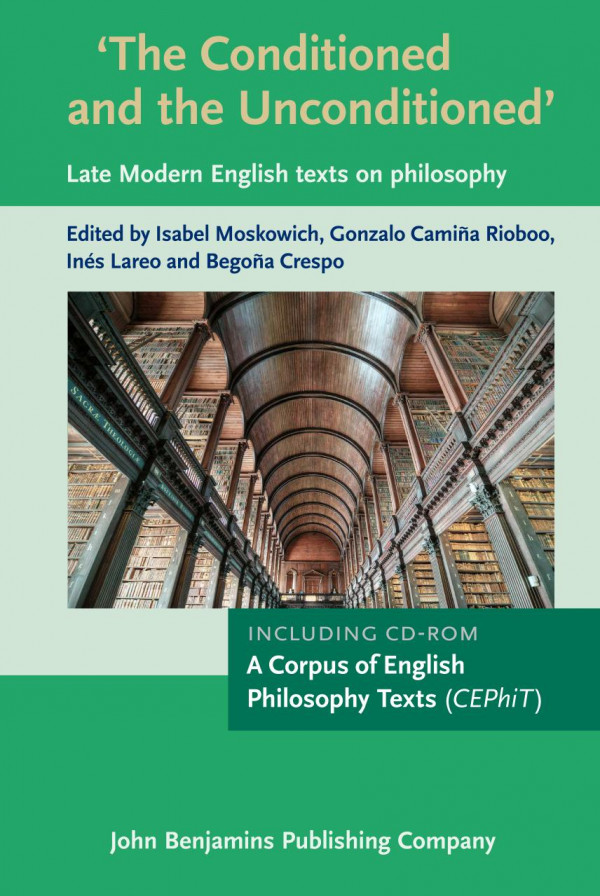
Product details:
ISBN 10: 9027262179
ISBN 13: 9789027262172
Author: Isabel Moskowich, Gonzalo Camiña Rioboo, Inés Lareo, Begoña Crespo
the Conditioned and the Unconditioned Late Modern English Texts on Philosophy 1st Edition Table of contents:
Chapter 1: Philosophical Foundations of the Conditioned and the Unconditioned
- 1.1 Defining the Conditioned and the Unconditioned in Philosophy
- 1.2 Historical Context of Late Modern English Philosophy
- 1.3 The Role of Language in Conceptualizing the Conditioned and Unconditioned
- 1.4 A Philosophical Overview: Kant, Hegel, and the Legacy of Modern Thought
- 1.5 The Shaping of Philosophical Discourse in Late Modern English Texts
Chapter 2: The Conditioned in Philosophy: Constraints and Limitations
- 2.1 The Nature of the Conditioned: From Empiricism to Constructivism
- 2.2 Conceptual Boundaries: Knowledge, Experience, and Language
- 2.3 Language as a Condition: The Relationship Between Thought and Expression
- 2.4 The Conditioned in Ethics: Moral Limits and Social Constructs
- 2.5 Case Study: David Hume and the Limits of Human Understanding
Chapter 3: The Unconditioned: Freedom, Universality, and Transcendence
- 3.1 The Concept of the Unconditioned in Classical and Late Modern Philosophy
- 3.2 Transcendence and Freedom: Kant’s Notion of the Noumenal
- 3.3 The Unconditioned as a Metaphysical Ideal
- 3.4 The Role of the Unconditioned in Moral Philosophy and Political Theory
- 3.5 Case Study: Friedrich Nietzsche and the Revaluation of the Unconditioned
Chapter 4: Language, Philosophy, and the Conditioned
- 4.1 The Influence of Linguistic Structures on Philosophical Thought
- 4.2 Structuralism, Post-Structuralism, and the Conditioned in Language
- 4.3 The Evolution of Philosophical Language in Late Modern Thought
- 4.4 The Philosophical Implications of Language as a Cultural Condition
- 4.5 Case Study: Ludwig Wittgenstein’s Later Philosophy and the Limits of Language
Chapter 5: The Unconditioned in Philosophy of Mind and Consciousness
- 5.1 The Mind-Body Problem: Unconditioned Consciousness and the Limits of Physicalism
- 5.2 Subjectivity, Objectivity, and the Unconditioned in Mental Phenomena
- 5.3 Theories of Consciousness: From Dualism to Phenomenology
- 5.4 The Unconditioned as a Condition for Human Freedom and Self-Realization
- 5.5 Case Study: The Phenomenology of Edmund Husserl and the Idea of Pure Consciousness
Chapter 6: The Role of the Conditioned in Ethics and Moral Philosophy
- 6.1 Moral Relativism vs. Moral Universality: The Debate Between the Conditioned and the Unconditioned
- 6.2 Social Conditioning and Ethical Frameworks
- 6.3 The Conditioned in Political Theory: Justice, Rights, and Social Structures
- 6.4 The Ethics of the Unconditioned: Autonomy, Freedom, and Moral Responsibility
- 6.5 Case Study: Immanuel Kant’s Categorical Imperative and Universal Moral Law
Chapter 7: The Unconditioned in Aesthetics and the Arts
- 7.1 Aesthetic Theories and the Search for the Unconditioned
- 7.2 Art as a Manifestation of the Unconditioned: Freedom from Social Constraints
- 7.3 The Conditioned in Artistic Expression: Cultural, Historical, and Social Influences
- 7.4 The Relationship Between the Beautiful and the Unconditioned in Late Modern Philosophy
- 7.5 Case Study: The Role of the Sublime in Romanticism and Aesthetic Philosophy
Chapter 8: The Conditioned and the Unconditioned in Metaphysics
- 8.1 Metaphysical Boundaries: From the Known to the Unknown
- 8.2 The Concept of God and the Unconditioned in Late Modern Thought
- 8.3 Determinism, Free Will, and the Unconditioned in Metaphysical Debate
- 8.4 The Problem of the Infinite and the Unconditioned in Contemporary Philosophy
- 8.5 Case Study: Hegel’s Dialectical Method and the Unfolding of the Absolute
Chapter 9: The Legacy of the Conditioned and the Unconditioned in Contemporary Thought
- 9.1 The Persistence of the Conditioned: Postmodernism, Deconstruction, and Social Theory
- 9.2 The Unconditioned in Contemporary Philosophical Movements: Idealism, Existentialism, and Beyond
- 9.3 The Role of the Conditioned and Unconditioned in Environmental Philosophy and Ethics
- 9.4 Philosophical Reinterpretations in the 21st Century: The New Materialism and the Rejection of Absolutes
- 9.5 The Future of Philosophy: How the Conditioned and Unconditioned Will Shape New Discourses
Chapter 10: The Intersection of Philosophy, Culture, and Society
- 10.1 Philosophy as a Cultural and Social Construct
- 10.2 The Influence of Societal Changes on the Conceptualization of the Conditioned and Unconditioned
- 10.3 The Political and Economic Dimensions of the Conditioned and the Unconditioned
- 10.4 Globalization and the Transformation of Philosophical Concepts
- 10.5 The Role of Philosophy in Shaping Future Cultural Narratives
People also search for the Conditioned and the Unconditioned Late Modern English Texts on Philosophy 1st Edition:
the conditioned stimulus
the conditioned response is the response to the
are the unconditioned and conditioned response the same
is the conditioned response the same as the unconditioned response
the difference between a conditioned and unconditioned response
Tags:
Isabel Moskowich,Gonzalo Camiña Rioboo,Inés Lareo,Begoña Crespo,Conditioned,Unconditioned Late,Modern English
You may also like…
History - European History
Uncategorized
Evil and the Philosophy of Retribution Modern Commentaries on the Bhagavad Gita Sanjay Palshikar
Uncategorized
Linguistics - Linguistics
Uncategorized
The Hatata Inquiries Two Texts of Seventeenth Century African Philosophy 1st Edition Yaqob
dictionaries & phrasebooks
Politics & Philosophy - Anthropology


